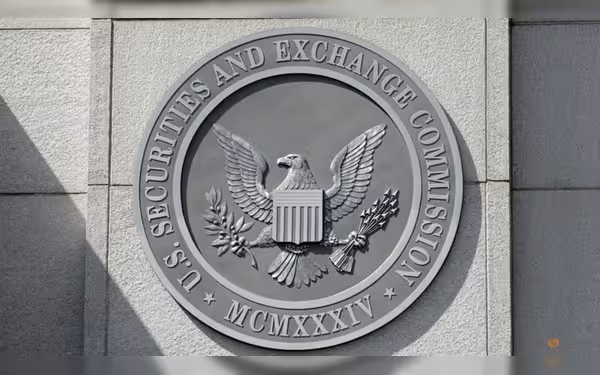Tuesday, July 2, 2024 04:13 PM
SEC Sues Consensys for Unregistered Broker Activities
- Consensys accused of unregistered broker activities by SEC
- SEC alleges Consensys failed to register as a broker
- Legal battle highlights regulatory challenges for cryptocurrency firms
 Image Credits: channelnewsasia
Image Credits: channelnewsasiaThe U.S. SEC sues Consensys for unregistered broker activities, shedding light on regulatory challenges in the cryptocurrency landscape.
The U.S. Securities and Exchange Commission (SEC) has taken legal action against Consensys, a prominent cryptocurrency firm, accusing it of operating as an unregistered broker. The SEC alleges that Consensys failed to register as a broker for its MetaMask swaps service and did not register the offer and sale of certain securities through its crypto staking programs.
In a complaint filed in U.S. District Court in Brooklyn, New York, the SEC claims that Consensys generated more than $250 million in fees from its unregistered broker activities. Consensys is recognized for its MetaMask self-custodial crypto wallet, enabling users to manage, purchase, transfer, and exchange tokens securely.
Previously, Consensys had initiated legal action against the SEC following an enforcement notice from the agency. The lawsuit contended that the SEC was attempting to regulate ether, the second-largest cryptocurrency, through enforcement measures. However, Consensys later revealed that the SEC had concluded its inquiry into the company.
Despite the closure of the investigation, Consensys affirmed its intention to pursue the lawsuit to affirm that the SEC lacks the legal jurisdiction to oversee software interfaces on the ethereum blockchain.
The SEC's lawsuit against Consensys sheds light on the regulatory challenges faced by cryptocurrency firms. This legal battle underscores the importance of compliance with securities laws in the rapidly evolving digital asset landscape. As the case unfolds, it will be crucial to monitor how regulatory authorities navigate the intersection of blockchain technology and traditional financial regulations.













